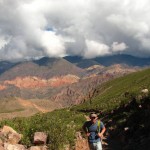This is my inaugural post in any blog, and is both a requisite of an exploratory course at UBC and a chance to explore my own personal expression of story telling.
Our course, ENGL 470A, combines social media, networking, peer review, and an in depth analysis of the Canadian narratives that have forged our identity as a nation. Our youth and diversity as a country lead us to rely heavily on our folklore, storytelling, and literature to define our identity. Coast to coast we are united by our endurance and mobility in adapting to change, but we are often divided by histories of colonization, war, culture and climate.
The diversity of Canadians is perhaps our greatest asset, giving us multiple views that can be used for problem solving. I doubt I am alone in expressing concerns about our current national dialogue. This Statistics Canada article from 2007 states that over the past century ten aboriginal languages have been entirely lost to Canadians. We are losing culturally distinct narratives and ethos alongside our languages.
Language, whether it be nuanced by local variations or entirely distinct in etiology, is critical for communication. We are multilingual, not only in French and English, but also in Chiac, Métis, Inuktituk, and many others. Simple put – we must elucidate how to better communicate in culturally relevant ways. Once we can establish a strong dialogue we can better address the challenges we encounter, from inequality and discrimination to international affairs and aid.
A wise man once told me that no-one is boring if you ask the right questions. Everyone has a story to tell. I am personally interested in how the dialogue between patients and physicians varies on who is in either role. Cultural clashes, miscommunication, paternalism, prejudice, and racism are all represented in our medical system. A higher value for storytelling (and listening) is crucial to effective, equal and excellent healthcare for all. I suggest tuning in to Dr. Brian Goldman to explore some of the current issues in the Canadian medical world.
As a brief aside I feel obliged to quickly mention censorship and the sciences, as an example that other Canadian narratives are actively silenced as well. I’ll no doubt return to this topic later on.
The goal of our course, as I understand it, is to survey Canadian literature, link-storm, and collaborate with our peers to address the future of Canadian narratives such that all voices can be represented. Stories are powerful and can shape the way we live our lives and how we interact with others. It is apparent that we are here to share and learn and in doing so we can contribute to a much larger conversation about our country.
I commend you for making it to the end of my post, and I look forward to learning from, debating with, reading about, and working with you all!
About me:
My name is Duncan MacGillivray, I’m a proud Maritimer and purveyor of stories. Currently I  am graduate student in Paediatrics – attempting to better grasp how the development of the immune system and how to harness this knowledge to better inform disease prevention, diagnosis, and treatment. The lab I work in is primarily focused on research for further vaccine development to target at risk populations. This is a fairly hot-topic, and I am happy to entertain any comments or discussion.
am graduate student in Paediatrics – attempting to better grasp how the development of the immune system and how to harness this knowledge to better inform disease prevention, diagnosis, and treatment. The lab I work in is primarily focused on research for further vaccine development to target at risk populations. This is a fairly hot-topic, and I am happy to entertain any comments or discussion.
I studied both biology and Cultural Anthropology at the University of New Brunswick, graduating with a BA and a BSc in 2011. I’ve spend time travelling, volunteering, and working throughout Canada, West Africa, and Argentina. My primary interests are in playing outside, preserving our wild spaces, and improving human health both within Canada and beyond.
Links & References:
Chung, Emily. “Muzzling of federal scientists widespread, survey suggests” CBC News 21 Oct 2013. Web. 7 Jan. 2014
White Coat Black Art. CBC 2014. Web. 7 Jan 2014. <http://www.cbc.ca/whitecoat/episode/>
Kollmann Lab. 2013. Web. 7 Jan. 2014. <http://cfri.ca/kollmann-lab/home>
Norris, Mary Jane. “Aboriginal Languages in Canada: Emerging Trends and Perspectives on Second Language Acquisition.” Canadian Social Trends 83 (2007): 20–28. Print.
Postscript – Any feedback is highly valued. Have at me with comments, concerns, and criticisms.
